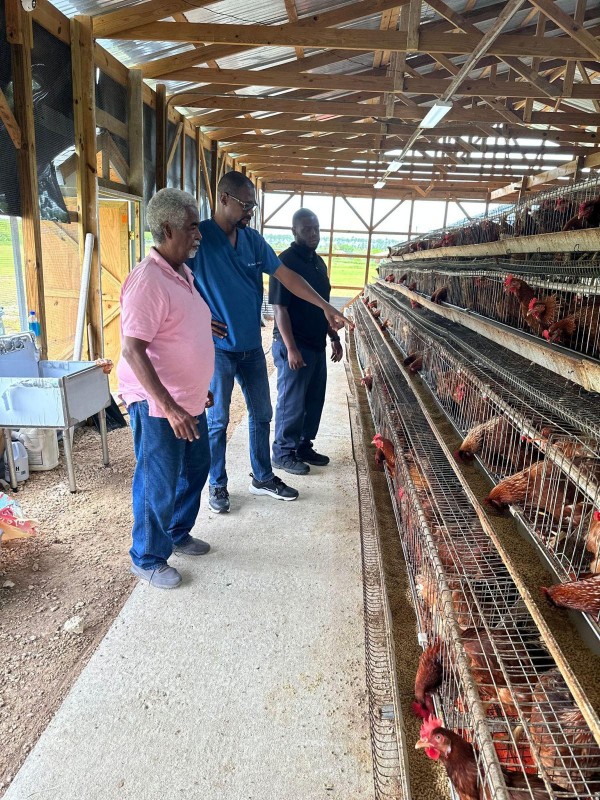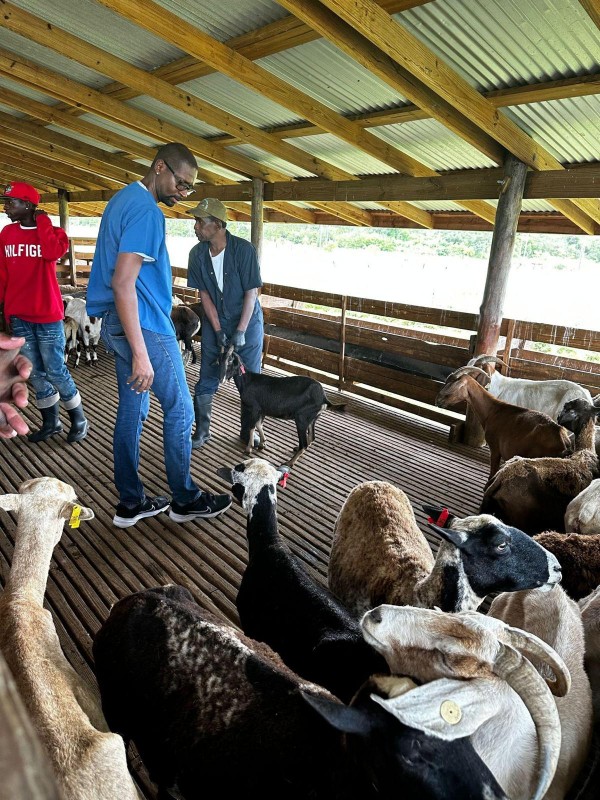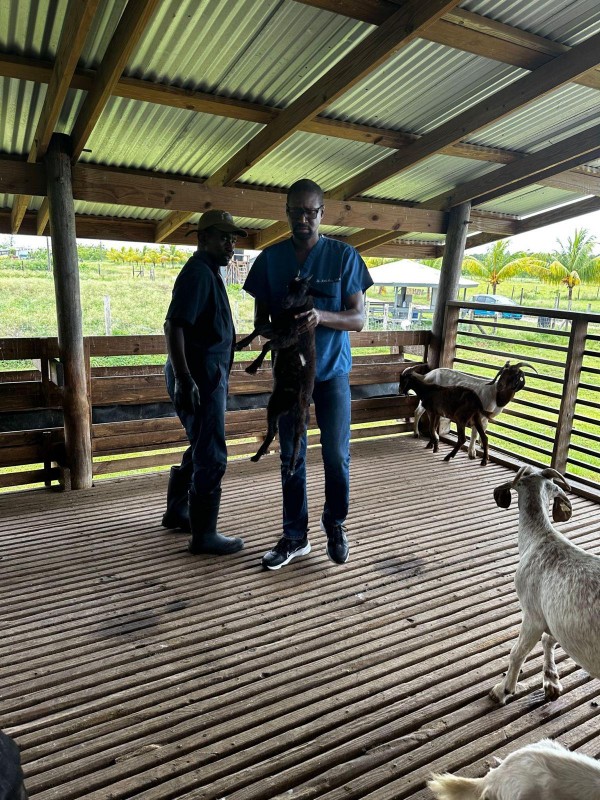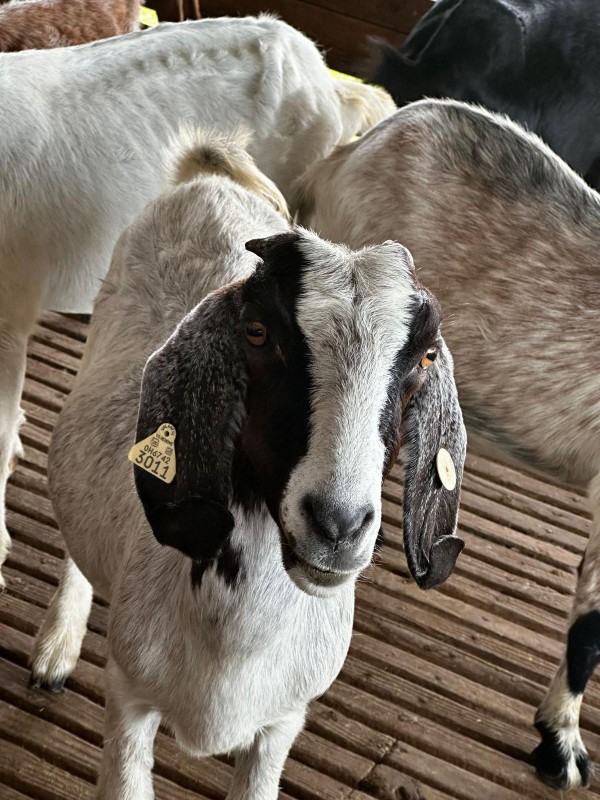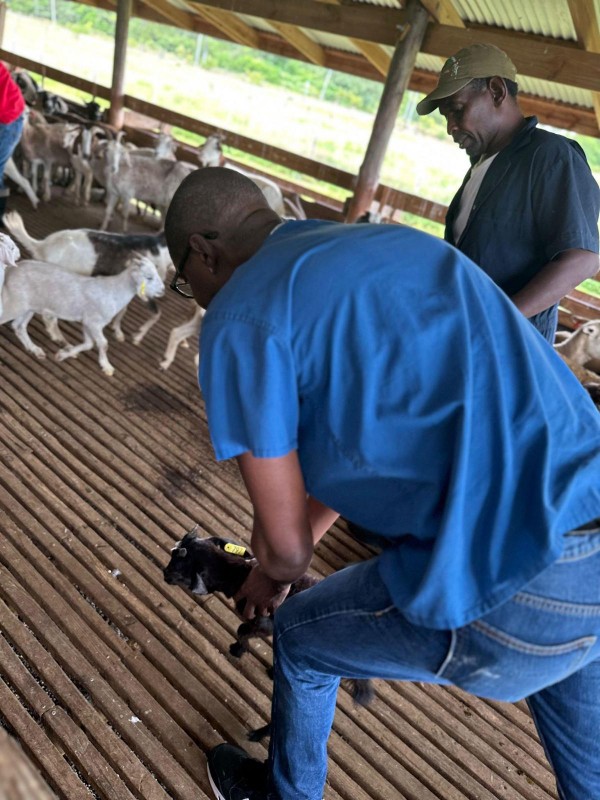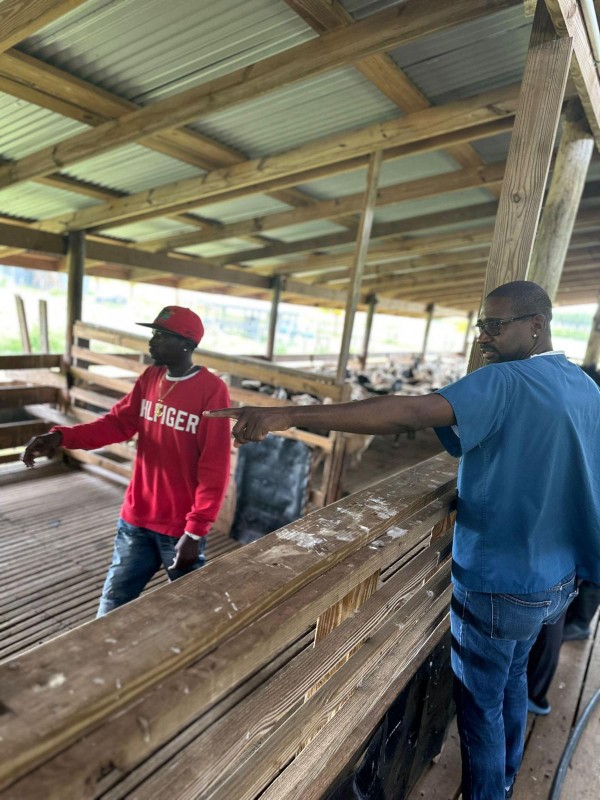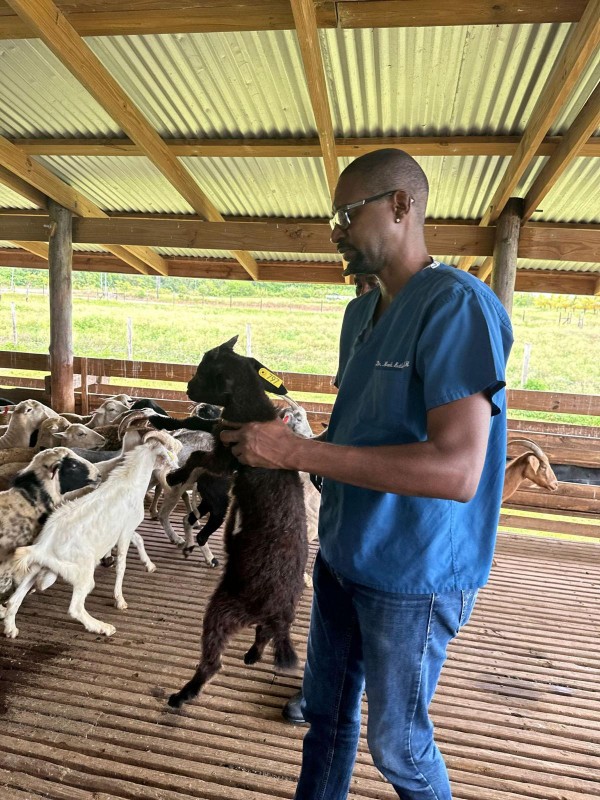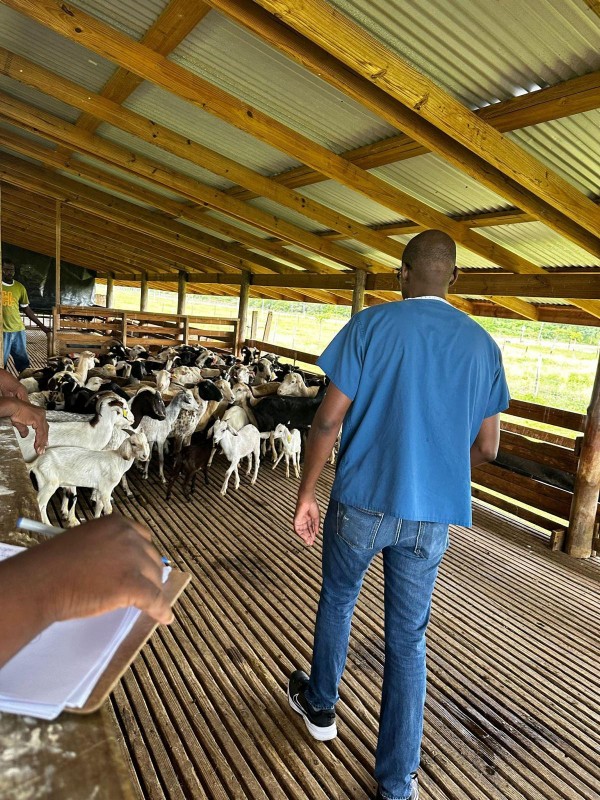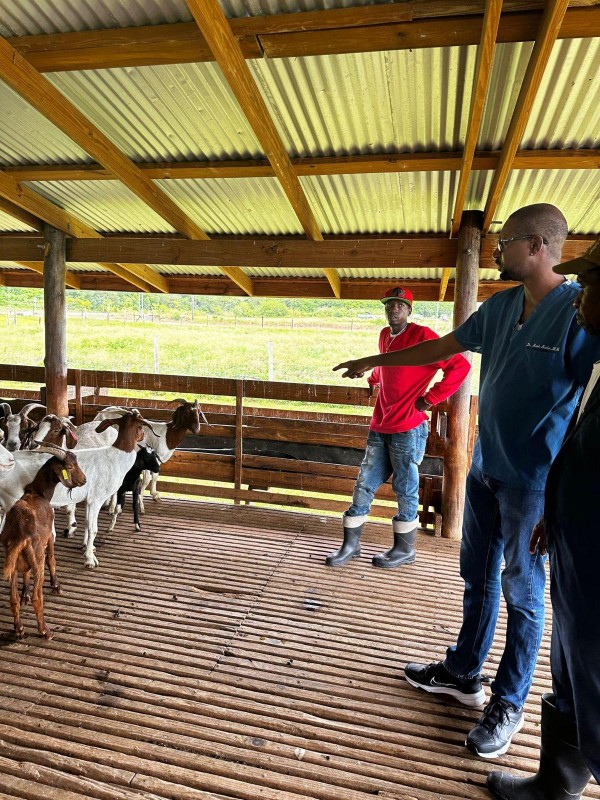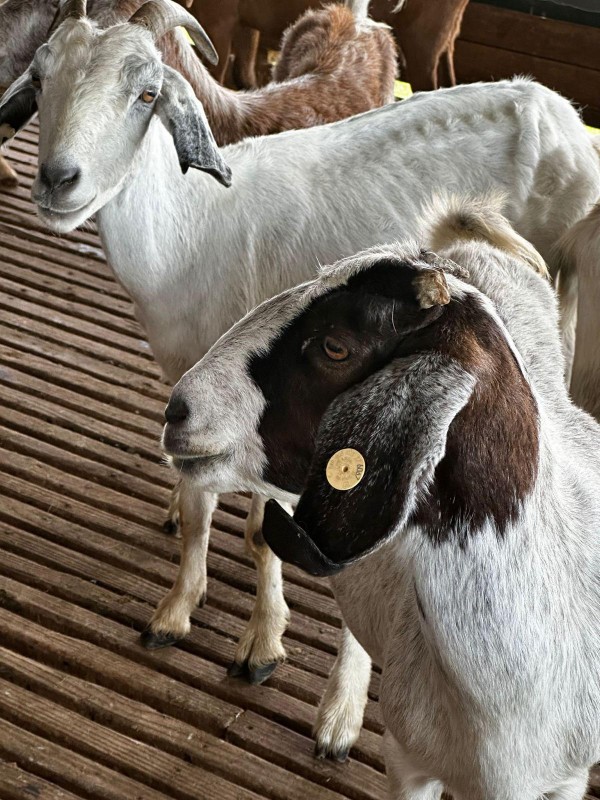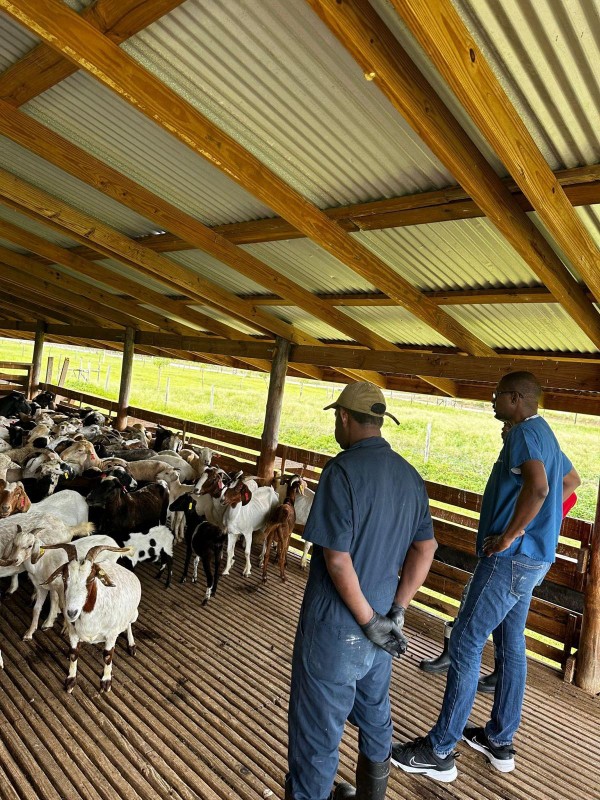BAMSI to improve genetic quality of herd
EXPANDING BAMSI'S HERD AND IMPROVING ANIMAL GENETICS: A STEP TOWARDS QUALITY FOOD PRODUCTION
Nassau, Bahamas, September 8, 2023: The Bahamas Agriculture & Marine Science Institute (BAMSI) has initiated a programme to optimise the size of its small ruminant herds (sheep and goats) and improve genetic quality. BAMSI veterinarian Dr Mark Butler said improving the herd's genetic quality would ultimately provide a critical bridge to higher-quality meat production.
Dr Butler said that health and production are inseparable partners in small ruminant animal husbandry, comparing it to a harmonious marriage. "Health and production are tied together like husband and wife. If animals are unhealthy, they don't produce."
During a recent inspection exercise at the North Andros farm, Dr Butler engaged strategies to improve herd health assessments of the small ruminants. He further explained the selection process of the animals to be used in the breeding programme. "We use proven herd health criteria to select the best and healthiest animals to breed. We separated the female goats (does) and female sheep (ewes) and selected those animals we thought, based on those criteria, were the best to breed, keeping in mind the ease of getting pregnant and carrying the pregnancy to term. Selection for breeding is a crucial step in the process." We will inject new genetics into the herd by artificial insemination, natural breeding or a combination of both. This move is designed to optimize the quality of the animals produced. Currently, the BAMSI herd has a total of 197 sheep and goats.
Like most small ruminant herds, new genetics will be needed over time. BAMSI's herd is no different in this regard. Over the ensuing six months, BAMSI will introduce purebred genetics to enhance the quality of the herd for meat production. BAMSI's long-term goal is to operate as a feeder herd, providing local farmers with high-quality small ruminants to kickstart their local ventures. The goal is to maintain a core herd at the North Andros farm while offering livestock to farmers, ensuring both quality and genetic diversity in their herds and across the Bahamas. The farmers can grow the animals for food or breed them to expand their herd.
Dr Butler said that the goal is to have the first breeding in Andros completed by November this year. He also indicated that BAMSI may collaborate with the Caribbean Agricultural Research and Development Institute (CARDI) to access technical support for artificial insemination. Introducing new genetics is a strategic move to accelerate the enhancement of the herd's genetic quality. Improving the herd's genetics will ultimately result in animals that grow faster, yield higher-quality meat, and meet the diverse needs of farmers and consumers alike. Dr Butler emphasized the programme's significance for the food industry, stating that high-quality animals are essential for producing safe and delicious meat for local consumption. This effort aligns with BAMSI's commitment to educating farmers on animal husbandry and production techniques. The Institute's extension services will also play a pivotal role in ensuring farmers have the knowledge and resources to raise healthy and productive animals, contributing to food quality and food safety in the Bahamas. "Increased small ruminant production can reduce the importation of animals. With better meat quality, local restaurants may be more inclined to buy locally –but this will not happen if animals are of low quality," he said.
Dr. Butler said that the quality of animals at BAMSI and that farmers raise directly impacts the end product (meat) that consumers enjoy. "When raising animals for food, quality management systems and good animal health practices determine the final quality of what we eat- they are interconnected."
As BAMSI's herd enhancement programme progresses, it represents a crucial step towards expanding the agricultural industry and promoting high-quality, locally sourced food products in the Bahamas.


